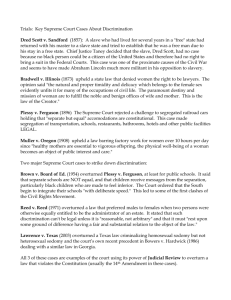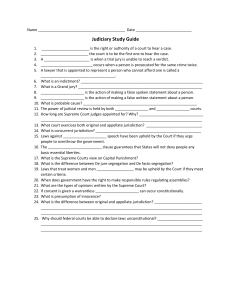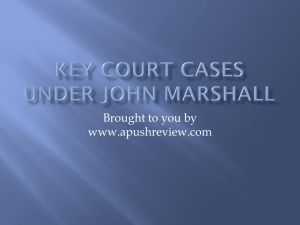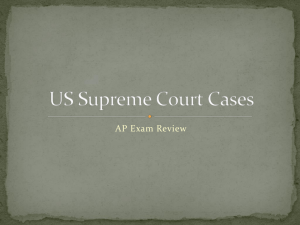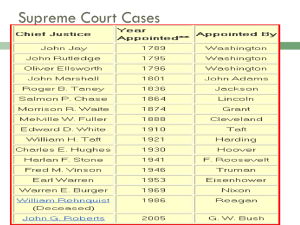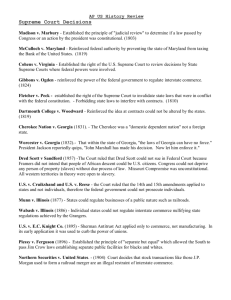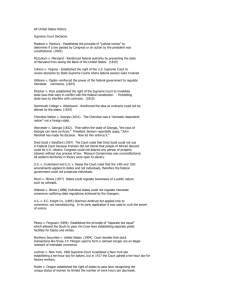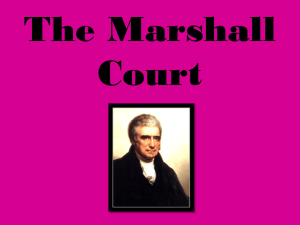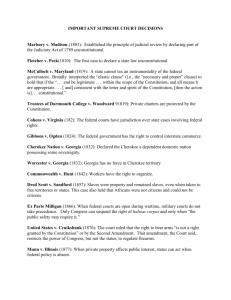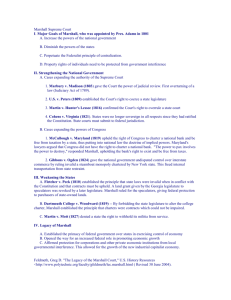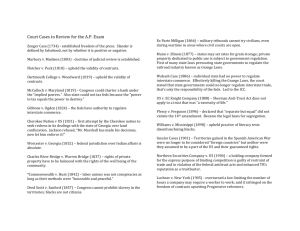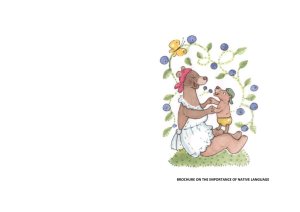Court Case Date Marbury v. Madison 1803 Dartmouth College v
advertisement
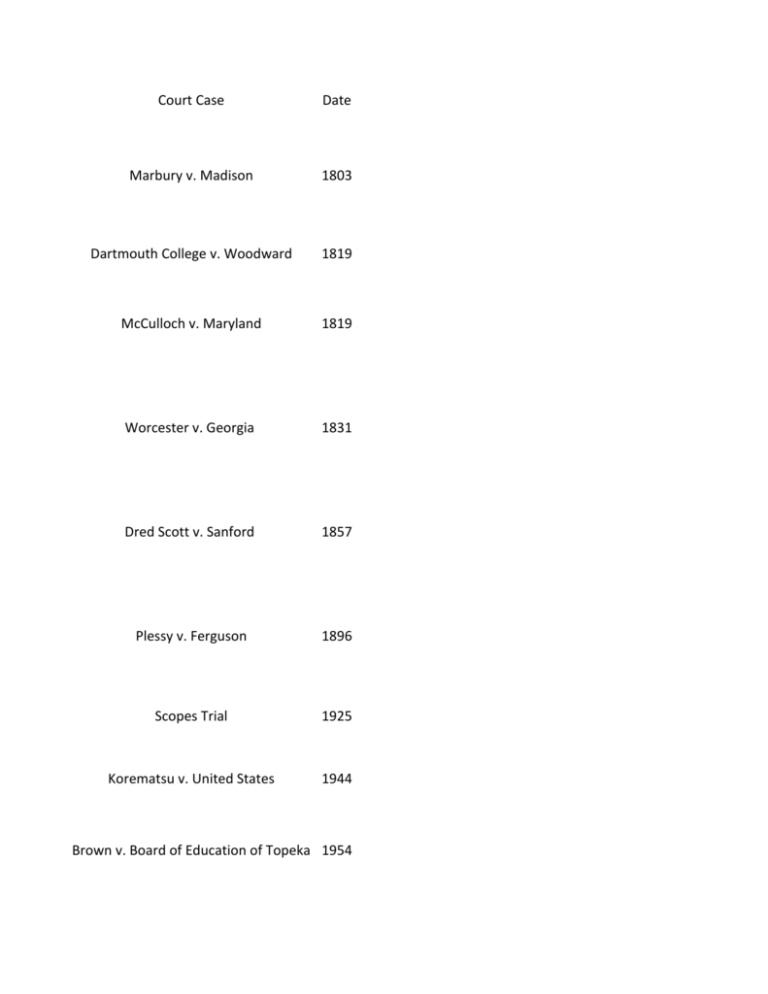
Court Case Date Marbury v. Madison 1803 Dartmouth College v. Woodward 1819 McCulloch v. Maryland 1819 Worcester v. Georgia 1831 Dred Scott v. Sanford 1857 Plessy v. Ferguson 1896 Scopes Trial 1925 Korematsu v. United States 1944 Brown v. Board of Education of Topeka 1954 Baker v. Carr 1962 Griswold v. Connecticut 1965 Miranda v. Arizona 1966 Roe v. Wade 1973 Significance Court case that gave the Supreme Court the power of Judicial Review. Decision stregthenened the role of the Federal Govt. John Marshall Court. Court case that protected the sanctity of contracts. Safe guarded business from interference by state governments. John Marshall Court. Court case that upheld the right of Federal implied powers. Allowed Congress the power to establish a National Bank. Court case that upheld the rights of the Cherokee Tribe. President Andrew Jackston refused to recognize the decision, and the Cherokee were removed from the state of Georgia. John Marshall Court Court case that found that since African Americans were not citizens, they could not petition the Supreme Court. The decision made the Missouri Compromise unconstitutional, allowing slave owners to take their slaves into any territory or state. Judge ruled that national legislation could not limit the spread of slavery. Court case that involved legality of segregated railroad cars. Decision approved the "separate but equal" accomodations for African Americans. Allowed segregation to be legal under the law. Court found defendant guilty of teaching evolution at a high school in Tennessee. Illustrates the cultural conflict of the 1920's between rural and urban America. Court upheld the constitutionality of Japanese Internment as a wartime necessity during WWII. Court decision reversed the Plessy v. Ferguson decision of "separate but equal" and declared the segregation in public schools was unconstitutional. Court case established the principal of "one man -­‐ one vote". Supreme court required that votin districts reorganized for some state leglislatures Court struck down a state law that probhibited the use of contraceptives. Court proclaimed a 'right to privacy" that soon provided a basis for decsions protecting women's abortion rights. Court ruled that no confession of a supected criminal could be admissible in a court of law, unless the suspect had been made aware of his or her rights. Court upheld abortion rights for women. Court based its decision in part on the right to privacy of the individual citizen.
